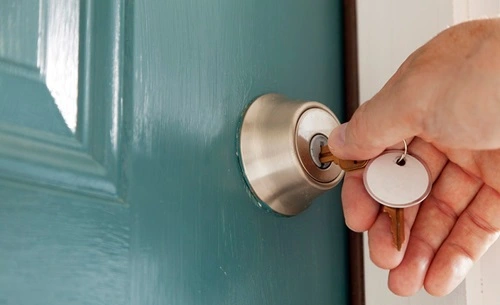No, it is not always illegal to change the locks on your spouse, but it depends on the circumstances and jurisdiction. The legality of changing locks hinges on property ownership, marital status, and whether there are court orders in place. While changing the locks may be seen as an attempt to assert control over shared property, it can also lead to legal consequences if done improperly.
Legal Considerations
1. Jointly Owned or Marital Property:
In cases where the property is jointly owned or considered marital property, both spouses generally have equal rights to access the home. Unilaterally changing the locks could be considered a violation of those rights and may lead to legal disputes. The other spouse retains the legal right to access the property unless a court order explicitly denies this right.
2. Sole Ownership:
If one spouse solely owns the property, they have more latitude in changing the locks. However, this may still be subject to state laws regarding marital property. In community property states, even sole ownership does not necessarily negate the other spouse’s rights to the home during the marriage.
3. During Divorce Proceedings:
Once divorce proceedings have begun, courts can issue temporary orders regarding property use. If a judge grants one spouse exclusive use of the marital home, they can legally change the locks to prevent the other spouse from entering. Without such an order, both parties typically retain access.
4. Protective Orders:
In cases involving domestic violence or abuse, courts often issue protective orders that grant one spouse exclusive possession of the home. Under these circumstances, changing the locks is legal and often necessary for safety.
Potential Consequences of Changing the Locks
Unilaterally changing the locks on your spouse without legal authority can lead to several issues:
- Legal Action: The locked-out spouse may file a motion to regain access, and the court could rule against the spouse who changed the locks.
- Damaged Property or Entry Attempts: A locked-out spouse might attempt to force entry, resulting in property damage.
- Negative Impact in Divorce Proceedings: Courts may view the act as controlling or unfair behavior, which could affect property division or custody arrangements.
When Is It Legal to Change the Locks?
1. With a Court Order: If a judge grants exclusive possession of the home, changing the locks is legal and enforceable.
2. By Agreement: If both spouses agree that one will move out and not return, the remaining spouse can change the locks without legal repercussions.
3. If the Property Is Solely Owned: A spouse who solely owns the property may change the locks, though consulting an attorney is advisable to avoid disputes.
Steps to Take Before Changing Locks
- Seek Legal Counsel: Consult an attorney to understand your rights and obligations.
- Obtain a Court Order: If you are in a contentious situation, request exclusive use of the property through the courts.
- Document Everything: Keep a record of communications and reasons for changing the locks to present if needed.
Related FAQs
Q. Can I change the locks if my spouse moves out voluntarily?
Ans: Yes, but only if there’s an agreement or court order confirming that they no longer have access rights.
Q. What happens if I change the locks illegally?
Ans: You could face legal consequences, including being ordered to provide a key or restore access to your spouse.
Q. Is changing locks during separation legal?
Ans: It depends on state laws and whether the home is considered shared marital property. Consult an attorney for clarity.
Q. Can a landlord change locks if only one spouse is on the lease?
Ans: Landlords should follow state rental laws and lease agreements, ensuring compliance before taking action.
Q. Does changing the locks affect child custody?
Ans: It can, especially if courts perceive the act as an attempt to control or limit access to children without cause..

